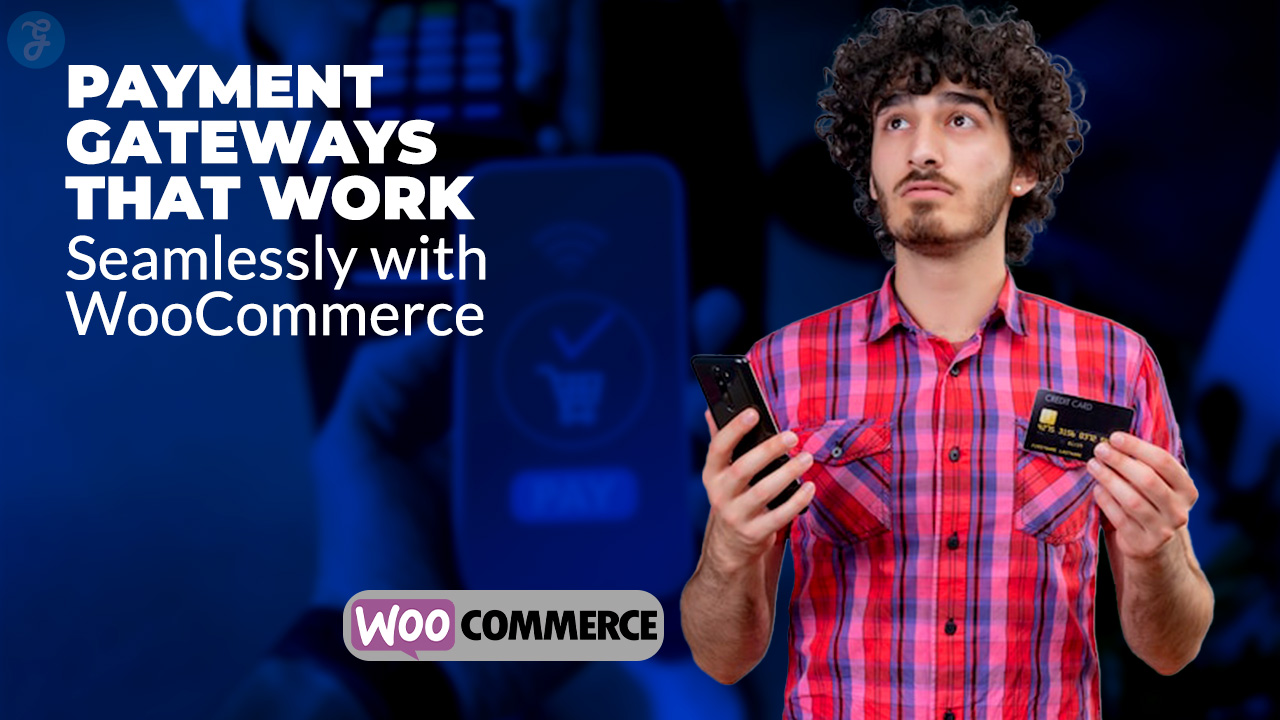Your store may lose sales at checkout. A clunky setup stops customers from paying with credit cards, Apple Pay, or Google Pay. Hidden transaction fees and weak fraud detection can scare shoppers away.
You need a payment gateway that works well with WooCommerce.
WooCommerce supports more than 45 payment processors. We picked 10 top options for real online stores. We cover fees, SSL certificate checks, PCI compliance, and recurring payments.
You’ll get easy setup tips for PayPal, Stripe, and WooPayments. Keep reading.
Key Takeaways
- WooCommerce supports 45+ payment processors, and this article spotlights 10 top gateways, including PayPal, Stripe, WooPayments, Square, Authorize.Net, Amazon Pay, Klarna, Razorpay, and Mollie.
- Stripe, PayPal, WooPayments, and Amazon Pay each charge 2.9% + $0.30 per transaction; Authorize.Net adds a $25 monthly fee; Square charges 2.9% + $0.30 online and 2.6% + $0.10 in person.
- Every gateway meets PCI DSS and uses SSL certificates. They layer on fraud prevention tools like two-factor authentication, web application firewalls, and real-time scanning to curb chargebacks.
- Stripe supports 135+ currencies and Razorpay supports 100+. Most gateways also accept Apple Pay, Google Pay, and local digital wallets to reduce cart abandonment.
- All solutions plug into WooCommerce in minutes. They offer recurring payment and subscription support via token vaults, webhooks, retry logic, and proration tools.
Key Factors to Consider When Choosing a Payment Gateway for WooCommerce
Pick a gateway that runs smoothly and kicks fraud to the curb. A strong security certificate and a strict data security standard keep checkout safe and your mind clear.
Transaction fees and costs
Stripe charges a 2.9% rate plus $0.30 per sale, and PayPal matches that deal. Authorize.Net adds a $25 monthly fee plus the same charges per payment. You pay a fixed charge on each debit or credit card swipe, whether you use a digital wallet or a bank transfer.
The WooPayments extension for WordPress shows each fee before you click buy, so you spot costs on checkout.
Small shops watch fixed charges like hawks, while big sellers balance rates across high volumes, to hug their margins. Some gateways nickel-and-dime you, at every swipe or refund, with extra chargeback fees when disputes pop up.
PCI DSS and SSL certificates work behind the scenes, plus fraud prevention shields, to protect customer trust.
Security and fraud prevention
PCI DSS compliance proves a gateway enforces data safety. Gateways lock credit and debit card data with a SSL certificate and secure sockets layer. Payment card industry rules demand firewalls, two-factor authentication, and card verification codes.
A web application firewall blocks hackers and bad bots like a guard dog, to keep secure payments.
Gateways like Braintree offer advanced fraud protection. They spot odd patterns and stop stolen cards. WooCommerce plugins use fraud detection and fraud prevention modules. They log risky orders, cut chargeback fees, and build customer trust.
Supported currencies and countries
Platforms list their supported currencies and countries. The e-commerce plugin handles transactions from over 100 regions. The payment API offers multi-currency support and powers payment processing.
Merchants compare digital wallets, bank transfers, and international credit cards.
Shops that offer real-time exchange rates win customer confidence. A U.S. seller can charge in euros or yen. Buyers pay with Visa cards, Mastercard, or Apple Pay. This setup cuts cart abandonment.
Ease of integration with WooCommerce
Plugging a payment add-on into WooCommerce takes minutes. You log in to your gateway account and copy the API keys. Then you paste them into the WooCommerce settings. The add-on works with debit cards, credit cards, digital wallets like Apple Pay and Android Pay.
The checkout form stays on your site under SSL certificate. This approach cuts cart abandonment.
Developers built most payment processors to blend into a CMS. Installation steps list API key retrieval as step one. Next click the toggle to enable a direct payment gateway. Customers see a familiar page and pay fast.
They gain trust with secure payments and PCI compliance.
Recurring payments and subscription support
Recurring payments keep cash flowing, like clockwork. Such support stays necessary for subscription-based businesses. WooCommerce Subscriptions plugin lets merchants launch plans, retry failed charges, send automated reminders.
Secure tokens protect payment methods, and SSL certificate plus two-factor authentication block fraud. Webhook service ties into processor APIs to automate billing cycles.
Subscription support suits any online store selling classes, products, or digital content. You handle proration, retrying failed payments, plan upgrades, and custom billing. The payment gateway meets PCI compliance and runs security audits.
Users stay happy, thanks to hassle-free renewals and fewer chargebacks.
PayPal Payments
PayPal Payments runs secure credit card checks with its API, meets PCI DSS rules, and wraps data in SSL certificates. It hooks into WooCommerce fast, accepts mobile vaults, and stops scams with tokenization.
Features & Benefits
The gateway offers fast checkout with credit cards, debit cards, digital wallets like Apple Pay and Google Pay, plus cryptocurrency payments. It charges a fee of 2.9% plus $0.30 per domestic sale, adding 1.5% on cross border orders.
It uses an SSL certificate and meets PCI DSS standards to lock out fraud. Fraud detection tools scan transactions and block bad actors in real time, so merchants avoid chargeback fees.
It supports recurring payments and subscriptions in WooCommerce. Systems sync with an online store and mobile payments in minutes. Merchants win customer trust with secure payments and smooth express checkout.
Global shoppers see prices in local currency, thanks to multi-currency support.
Pros & Cons
Here is a quick chart with pros and cons just for you.
| Pros | Cons |
|---|---|
| Built-in WooCommerce payment gateway | Higher fees for international transactions |
Stripe
Stripe acts like a trusty sidekick for WooCommerce stores.
| Stripe for WooCommerce | |
|---|---|
| Transaction Fee | 2.9% + $0.30 per transaction. |
| Global Currencies | Supports 135+ currencies and many payment methods. |
| Security | PCI DSS compliant with built-in fraud tools. |
| API & Tools | Stripe API, Checkout, command-line tool, online console. |
| Pros |
|
| Cons |
|
WooPayments (by WooCommerce)
WooPayments sits right in your dashboard, making checkout a breeze.
| Aspect | Details for Readers |
|---|---|
| Integration | Built into WooCommerce dashboard |
| Fees | 2.9% + $0.30 per U.S. card transaction |
| Global Reach | Available in over 38 countries |
| Security | PCI compliant, uses SSL certificates |
| Subscriptions | Supports recurring billing via REST API |
| Setup Speed | Go live in minutes with guided steps |
| Support | Live chat, docs, and community forums |
Square
Square powers small shops with a simple m-commerce link for WooCommerce. Merchants pay 2.9 % plus thirty cents per online sale. In person, they swipe cards at 2.6 % plus ten cents. The system accepts credit cards, debit cards, Apple Pay and Google Pay through contactless payment. Vendors plug in the Square Reader or add their online store in minutes.
Fraud filters meet payment card industry data security standard for safe transactions. NFC taps let buyers pay with mobile wallets. WooCommerce plugins sync stock and sales in real time. Two-factor authentication adds extra security at checkout. Square acts as a payment processor for seamless digital wallets and m-commerce moves.
Authorize. Net
Authorize.Net charges $25 per month. It charges a transaction fee of 2.9% plus $0.30 on every sale. The gateway links to WooCommerce and offers a flexible API. It meets PCI compliance and runs an SSL certificate for secure payments. It boosts fraud prevention with two-factor authentication and address verification service.
Stores set up recurring payments and subscription billing in minutes. It accepts major card networks for credit and debit cards and digital wallets like Apple Pay and Google Pay. Merchants track every sale in a real-time dashboard and manage chargeback fees. Many store owners enjoy higher customer trust when they use this WooCommerce payment gateway plugin.
Amazon Pay
Amazon Pay taps into the Amazon ecosystem to speed up the checkout. You can use saved credit card and debit card details from your Amazon account. The service keeps all payment info on Amazon’s servers behind strong SSL. This payment gateway meets PCI compliance and secures data. Shoppers click one button to complete an online payment without retyping. The gateway blends with WooCommerce via a free plugin.
Amazon charges 2.9% + $0.30 per transaction. The system links e-wallets and Amazon accounts around the world. It spots fraud with Amazon’s fraud detection engine. This approach helps cut cart abandonment and keeps checkout swift.
Klarna
Klarna offers buy now, pay later options for WooCommerce stores. Store owners can add split payments or monthly installments. They can accept credit cards, debit cards, and digital wallets. The system uses SSL and meets PCI DSS standards. This setup secures payments and shields customers. Pricing varies by plan. You can start small or scale fast.
It hooks via API calls and webhooks. It runs fraud detection and two-factor checks at checkout. You can sell goods and collect payments on flexible terms. Customers see clear payment schedules. This can cut cart abandonment and boost customer trust.
Razorpay
Razorpay serves as a payment gateway for over 100 currencies, making it a go-to option for global stores. It ties in with Apple Pay, Google Pay, credit cards, and cryptocurrency payments. The system uses SSL certificate encryption and two-factor authentication to lock out fraud. PCI compliance and real-time fraud detection guard each sale.
Merchants launch recurring payments and manage subscriptions with a simple plugin. They can integrate it with WooCommerce in minutes, and start selling digital or physical goods fast. Razorpay also supports invoice billing and split payments in a few clicks.
Mollie
Mollie posts transparent fees in its dashboard, so you see each transaction cost before it hits your account. It handles transactions in many currencies for multi-currency support. The plugin links to WooCommerce in seconds and secures all data with an SSL certificate. It has built in fraud prevention and meets PCI compliance. Shoppers pay fast via Apple Pay, Google Pay, or card on the payment screen. You can set up recurring payments with easy card vaulting.
Takeaways
These 10 gateways power WooCommerce stores with secure transactions. Each tool adds digital wallets, Visa, Amex and checkout ease. You can set up recurring payments within minutes.
Store owners see less cart abandonment and high customer trust. Plugins handle risk screening, HTTPS encryption and two step login with a click. Pick the right payment method by weighing processing costs.
Test your setup in sandbox mode before going live.
FAQs on WooCommerce Payment Gateways for Smooth Transactions
1. What payment methods can I use with WooCommerce?
You can use credit/debit cards, like Discover, Amex or Visa, digital wallets, cryptocurrency payments, and prepaid cards, even Apple Pay, Google Pay, Amazon Pay or Apple Cash. You plug in authorize.net, PayPal Pro or WooCommerce Payments as your payment processor.
2. How do I set up recurring payments in my online store?
You pick a WooCommerce plugin for subscriptions. You install WooCommerce Subscriptions or a similar extension, add your payment gateway, and you are ready to bill customers on schedule. It is as easy as pie.
3. Are transaction fees high with these gateways?
Fees vary by gateway. Some charge a flat rate, others take a small cut per sale. You also pay chargeback fees, and a bit for multi-currency support or value-added tax. Shop around, then pick the best deal.
4. How can I prevent fraud on my site?
You add fraud prevention and fraud detection tools in your gateway. You force https with an SSL certificate, keep PCI DSS compliance up to date, and turn on two-factor authentication with touch id or FaceID. A qualified security assessor can help you sleep at night.
5. Can these gateways help cut cart abandonment?
Yes, they smooth your checkout process. A direct payment gateway keeps shoppers on your page. A redirect payment gateway sends them offsite for a quick moment. Both boost ease of use, customer trust and sales.
6. Do these gateways support multi-currency and tax rules?
Yes, many offer multi-currency support so buyers pay in dollars, euros or pounds. They can auto-calculate value-added tax for each region. You stay on the right side of local rules, no headache.










































